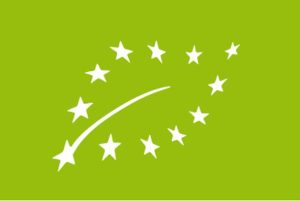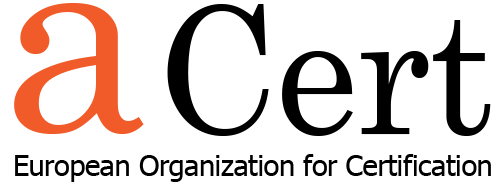how can we help you?
Contact us at the A CERT office nearest to you or submit a business inquiry online.
Having values, we offer strictly professional services and through the recognition and reputation of the A CERT, our associated companies and structures and strategic collaborators, we add value to the products, services, institutes and organizations giving them a competitive advantage and making them capable of achieving a dominant position in national and international level.

how can we help you?
Contact us at the A CERT office nearest to you or submit a business inquiry online.
Having values, we offer strictly professional services and through the recognition and reputation of the A CERT, our associated companies and structures and strategic collaborators, we add value to the products, services, institutes and organizations giving them a competitive advantage and making them capable of achieving a dominant position in national and international level.

COMMISSION DELEGATED REGULATION (EU) 2020/2146
of 24 September 2020
supplementing Regulation (EU) 2018/848 of the European Parliament and of the Council as regards exceptional production rules in organic production
Article 1
Recognition of catastrophic circumstances
1. For the purposes of the exceptional production rules referred to in Article 22(1) of Regulation (EU) 2018/848, in order for a situation to qualify as catastrophic circumstances deriving from an ‘adverse climatic event’, ‘animal diseases’, an ‘environmental incident’, a ‘natural disaster’ or a ‘catastrophic event’, as well as any comparable situation, it shall be recognised as catastrophic circumstances by a formal decision issued by the Member State in which the situation occurs.
2. Depending on whether the catastrophic circumstances affect a specific area or an individual operator, the formal decision issued under paragraph 1 shall refer to the area or operator concerned.
Article 2
Conditions for derogations
1. Following the formal decision referred to in Article 1, the competent authorities may, upon identification of the operators affected in the area concerned or upon request from the individual operator concerned, grant the relevant derogations set out in Article 3 and the conditions related thereto, provided that those derogations and conditions apply:
(a) for a limited period and no longer than necessary, and in no case longer than 12 months, to continue or recommence organic production as carried out before the date of application of those derogations;
(b) in relation to specifically affected types of production or, where relevant, land parcels; and
(c) to all relevant organic operators affected in the area concerned or only to the individual operator concerned, as the case may be.
2. The application of the derogations referred to in paragraph 1 shall be without prejudice to the validity of the certificates referred to in Article 35 of Regulation (EU) 2018/848 during the period where the derogations apply, provided that the operator or operators concerned fulfil the conditions under which derogations were granted.
Article 3
Specific derogations from Regulation (EU) 2018/848
1. By way of derogation from point 1.8.1 of Part I of Annex II to Regulation (EU) 2018/848, for the production of plants and plant products other than plant reproductive material, non-organic plant reproductive material may be used when the use of organic or in conversion plant reproductive material is not possible, provided that point 1.8.5.3 of Part I of that Annex and, where appropriate, the requirements set out in point 1.7 of Part I of that Annex are complied with.
2. By way of derogation from point 1.3.1 of Part II of Annex II to Regulation (EU) 2018/848, the herd or flock may be renewed or reconstituted with non-organic animals in the case of high mortality of animals and when organically reared animals are not available, provided that the respective conversion periods specified in point 1.2.2 of Part II of that Annex II are complied with.
The first subparagraph shall apply mutatis mutandis to the production of bees and other insects.
3. By way of derogation from point 1.4.1(b) of Part II of Annex II to Regulation (EU) 2018/848, livestock may be fed with non-organic feed instead of organic or in-conversion feed, when feed production is lost or restrictions are imposed.
4. By way of derogation from points 1.4.2.1, 1.6.3 and 1.6.4 of Part II of Annex II to Regulation (EU) 2018/848, when the production unit of livestock is affected, the grazing on organic land, the stocking density in buildings and minimum surfaces for indoor and outdoor areas as laid down in an implementing act adopted pursuant to Article 14(3) of that Regulation may be adapted.
5. By way of derogation from point 1.9.1.1(f) of Part II of Annex II to Regulation (EU) 2018/848, when feed production is lost or when restrictions are imposed, the percentage of the dry matter consisting of roughage, fresh or dried fodder, or silage in daily rations may be reduced, provided that the animal’s nutritional requirements at the various stages of its development are met.
6. By way of derogation from point 1.9.6.2(b) of Part II of Annex II to Regulation (EU) 2018/848, where the survival of the colony is endangered for other reasons than climatic conditions, bee colonies may be fed with organic honey, organic pollen, organic sugar syrups, or organic sugar.
7. By way of derogation from points 1.9.6.5(a) and (c) of Part II of Annex II to Regulation (EU) 2018/848, where the survival of the colony is endangered, bee colonies may be moved to areas not respecting the provisions for the placing of the apiaries.
8. By way of derogation from point 3.1.2.1(a) of Part III of Annex II to Regulation (EU) 2018/848, aquaculture stock may be renewed or reconstituted with non-organic aquaculture animals in case of high mortality of aquaculture animals and when organically reared animals are not available, provided that the latter two thirds of the duration of the production cycle are managed under organic management.
9. By way of derogation from the implementing act adopted pursuant to Article 24(9) of Regulation (EU) 2018/848 and establishing in particular the conditions for use of products and substances authorised in organic production, sulphur dioxide may be used in the making of products of the wine sector, up to the maximum content set out in Part B of Annex I to Delegated Regulation (EU) 2019/934 when the sanitary status of organic grapes obliges the winemaker to use more sulphur dioxide than in previous years to obtain a comparable final product.
Article 4
Monitoring and reporting
1. Member States shall immediately inform the Commission and the other Member States on the derogations granted by their competent authorities pursuant to this Regulation via a computer system made available by the Commission that enables the electronic exchange of documents and information.
2. Any operator to whom the granted derogations apply shall keep documentary evidence relating to the granted derogations as well as documentary evidence on the use of those derogations during the period where those derogations apply.
3. The competent authorities, or where appropriate, the control authorities or control bodies of the Member States, shall verify the compliance of the operators with the conditions of the granted derogations.
Article 5
Entry into force and application
This Regulation shall enter into force on the twentieth day following that of its publication in the Official Journal of the European Union.
It shall apply from 1 January 2022.
This Regulation shall be binding in its entirety and directly applicable in all Member States.
Applications Documents
Council Regulation

This regulation establishes the legal framework for all levels of production, distribution, control and labeling of organic products which may be offered and traded in the EU. It determines the continued development of organic production through the provision of clearly defined goals and principles. General production, control and labeling guidelines were established by the Council Regulation and can therefore only be changed by the European Council of Agricultural Ministers. The previous Regulation (EEC) No. 2092/91 is simultaneously repealed.
The new labeling regulations in connection with the obligatory use of the EU organic logo were postponed until 1 July 2010 by an amendment to the Council Regulation.
Area of applicability
The Council Regulation applies to the following agricultural products, including aquaculture and yeast:
- Living or unprocessed products
- Processed foods
- Animal feed
- Seeds and propagating material
Collection of wild plants and seaweed is also included in the scope of this Regulation
Not included in its scope:
- Products from hunting and fishing of wild animals.
Commission Regulations
The following Commission Regulations have been adopted thus far:
- Commission Regulation (EC) No. 889/2008 of 5 September 2008 with detailed rules on production, labeling and control including its amendment on production rules
- for organic yeast, Commission Regulation (EC) 1254/2008 of 15 December 2008
- for organic aquaculture animal and seaweed production, Commission Regulation(EC) No 710/2009 of 5 August 2009
- Commission Regulation (EC) No. 1235/2008 of 8 December 2008 with detailed rules concerning import of organic products from third countries
In Commission Regulation (EC) No. 889/2008 all levels of plant and animal production are regulated, from the cultivation of land and keeping of animals to the processing and distribution of organic foods and their control. They go into great technical detail and are, for the most part, an extension of the original organic Regulation, except where this was regulated differently in the Council Regulation.
Multiple Annexes are attached to the Commission Regulation. Within these one can find the following:
- Products permitted in organic farming, such as fertilisers, soil ameliorants and pesticides
- Minimum requirements on the size of housing and exercise areas including pastures for organic livestock, depending on animal species and development stage.
- Non-organic animal feed, feed additives and processing aids for the production of compound feed and premixtures permitted in organic farming.
- Non-organic ingredients, additives and processing aids permitted in organic food production (including yeast production).
- Requirements on the Community logo.
These Annexes and other parts of this Commission Regulation can be supplemented by the Commission so as to keep them up to date in regard to continuing developments in technology, science and the organic market.
In order to facilitate the implementation of the new rules and to incorporate some expiring exemptions of the previous organic Regulation, transitional measures were laid down.
In addition to EU legislation on organic farming and organic production, organically operating farmers and processors must also adhere to generally applicable rules on agricultural production and processing of agricultural products. That means that all generally applicable rules on the regulation of the production, processing, marketing, labeling and control of agricultural products also apply to organic foods.
